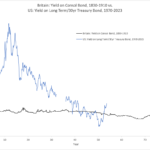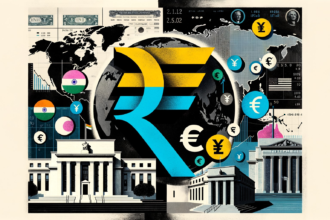Item 1 of 2 Chinese yuan banknotes are seen in this illustration picture taken April 25, 2022. REUTERS/Florence Lo/Illustration
Jan 25 (Reuters) – Bearish bets on multiple emerging Asian currencies gained momentum as traders adjusted their bets on early rate cuts by the U.S. Federal Reserve, driving investors to the safe-haven dollar, according to a Reuters poll.
Most Asian currencies have been thrown off course from a U.S. dollar short squeeze since the beginning of the year after market participants scaled back expectations of aggressive interest rate cuts in 2024 by the Fed.
The odds of policymakers cutting rates in March have fallen to 41.5% from just over 75% a month ago, according to CME Group’s FedWatch Tool.
The Malaysian ringgit was the most shorted currency as investor confidence remained weak for almost a year. Traders strengthened their bearish bets on the South Korean won , Thai baht and Taiwan dollar , according to the fortnightly poll of 10 analysts.
“It still remains a U.S. dollar and a negative yield differential story (for the ringgit),” OCBC’s currency strategist Christopher Wong said.
“Softer economic growth, inflation print and little that the Malaysian central bank can do to policy was also another consideration,” Wong added.
Additionally, geopolitical tensions coupled with subdued growth in Asia’s largest economy China have resulted in currencies like the ringgit, Korean won and the Taiwan dollar being battered since the start of 2024, according to Wong.
“Firing off a bazooka-sized stimulus isn’t going to solve China’s economic ails, which are more structural in nature,” David Chao, global market strategist, Asia Pacific (ex-Japan) at Invesco said in a client note.
Short bets on the Philippines peso and the Singapore dollar reached their highest level since November 2023, the poll showed.
Investors now look forward to the Fed’s policy meeting next week, where any comments from Chair Jerome Powell will be scrutinised for cues on the trajectory of rate hikes.
The Indian rupee emerged as the only currency where investors have remained positive, with bullish bets rising to their highest since mid-June 2023.
Investor sentiment improved from the inclusion of Indian government bonds in the two global fixed income-benchmarks from mid-2024, which could lead to multi-billion dollar inflows.
The Asian currency positioning poll is focused on what analysts and fund managers believe are the current market positions in nine Asian emerging market currencies: the Chinese yuan, South Korean won, Singapore dollar, Indonesian rupiah, Taiwan dollar, Indian rupee, Philippine peso, Malaysian ringgit and the Thai baht.
The poll uses estimates of net long or short positions on a scale of minus 3 to plus 3. A score of plus 3 indicates the market is significantly long U.S. dollars.
The figures include positions held through non-deliverable forwards (NDFs).
The survey findings ASIAPOSN are provided below (positions in U.S. dollar versus each currency):
Sign up here.
Reporting by Archishma Iyer in Bengaluru; Editing by Eileen Soreng
Our Standards: The Thomson Reuters Trust Principles.



















